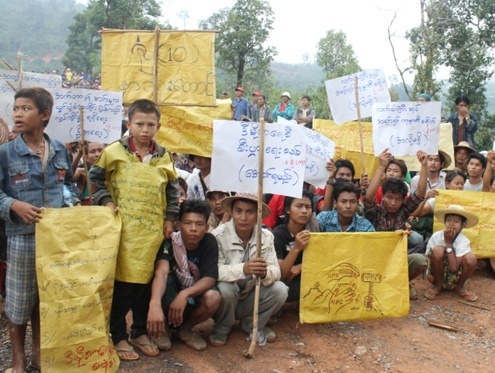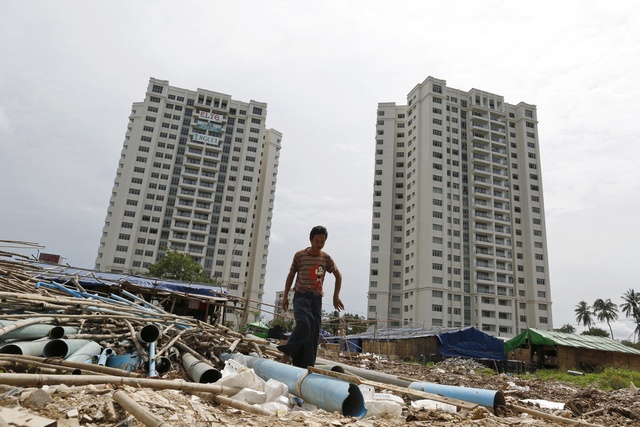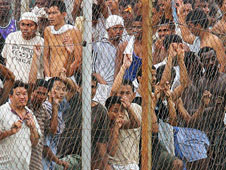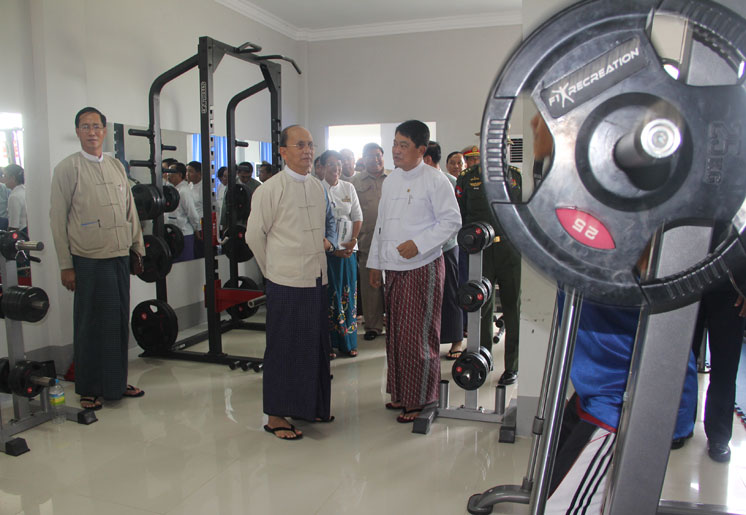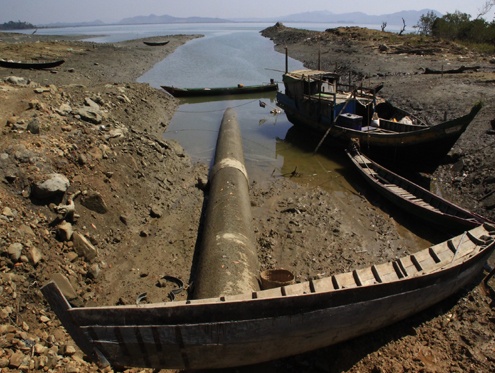Twenty more miners have been charged after staging a protest against the suspension of the Moehti Moemi gold mine in Mandalay and for resisting security guards who came to remove equipment from the dig sites.
Myo Tin, one of the miners facing a lawsuit, said: “They [security guards] came armed with sticks and swords and surrounded us like a bunch of criminals, so we confronted them. There was no physical altercation, we just told them we would not accept violence and should negotiate like gentlemen.”
An official at Yamethin’s Tugon police station said the 20 miners were handed down a variety of charges on 20 October for obscenity, criminal intimidation, causing harm, and assaulting public servants.
[related]
Previously on 5 October, five miners were charged by police after the Myanmar National Prosperity Co Ltd (MNPC) complained that they were involved in a confrontation with security officers who came to the site to dismantle their accommodation huts.
The protesting miners left the site on 8 October when the five initially charged were summoned by Yamethin police. However, soon after they decided to open a rally camp at the nearby Shwemyintin Pagoda after failing to reach a settlement with MNPC representatives.
Sources said around 100 protestors remain at the rally site including women and children, although they were originally told to leave the premises by 21 October by the pagoda’s trustee committee.
Zaw Naing Win, one of the protestors, said the sit-in group has issued three demands.
“We are requesting the company [MNPC] to: allow us to continue working at the gold mines as before; to amend the strict regulations laid down by the company; and to allow vendors and motorbike taxis free access to the mines,” he said.
Read more: http://www.dvb.no/news/thousands-of-miners-protest-government-order/22287


